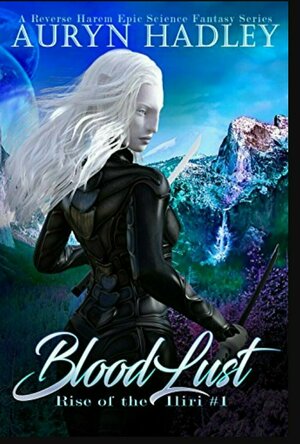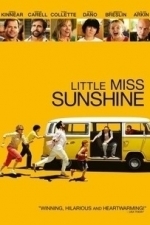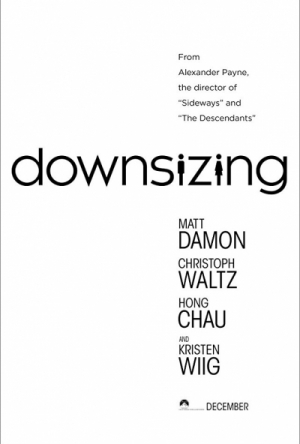
Bank Valuation and Value Based Management: Deposit and Loan Pricing, Performance Evaluation, and Risk
Book
The definitive guide to complying with the brand-newBasel III requirements and creating sustainable...
Sarah (7800 KP) rated Little Miss Sunshine (2006) in Movies
Mar 24, 2021
Little Miss Sunshine is a quirky gem of an indie film from 2006 that whilst a favourite of mine and Oscar nominated, has likely flown below the radar for many mainstream viewers. Which is a huge shame as this is such a fun, heartwarming and enjoyable film
Directed by husband and wife team Jonathan Dayton and Valerie Faris, Little Miss Sunshine follows the life of the dysfunctional Hoover family from New Mexico. The Hoovers are a family of unfortunates, misfits and losers, and probably one of the most realistic family depictions you’ll ever seen on screen outside of reality TV. There’s Sheryl (Toni Collette), the harassed mum who keeps her family fed on fast food. Dad Richard (Greg Kinnear) who’s trying to peddle a failing business that focuses on teaching others the secrets to success. Grandpa Edwin (Alan Arkin), an ageing hippie with a drug habit that has been kicked out of his retirement home. Sheryl’s brother Frank (Steve Carell), a gay man currently recovering from a suicide attempt after his partner left him. Son Duane (Paul Dano) who’s goal to get into flight school has led him to take a vow of silence. And finally there’s young daughter Olive (Abigail Breslin), who’s obsession with beauty pageants leads the family to take a cross country trip in an ageing VW van to help her compete in the Little Miss Sunshine pageant. Along the way, the family encounter a variety of mishaps and events that can potentially change their lives.
The Hoover family for the most part are ridiculously lovable and this is entirely down to their flaws that they are so likeable. Aside from Dad Richard who has a number of questionable ethics and morals that demean others, the family and their unique quirky personalities are the main reason why this film is so enjoyable. And the fact that the entire family are all brought together by young Olive across the span of the film makes this incredibly heartwarming. Olive is an underdog and being realistic, not the type of girl who you’d see in your typical American beauty pageant, but you still find yourself rooting for her all the same.
The cast are fantastic and while you can always rely on Toni Collette, Alan Arkin and Greg Kinnear, it’s Steve Carell and Abigail Breslin that shine brightest. Until this, I didn’t think Steve Carell could do serious and especially not a role that like. But he excels, bringing a sad, intelligent air to Frank and personally I think this is his best role to date. And then there’s Abigail Breslin, a 9 year old who steals the show and pulls the entire cast and film together. Together with a clever, well written script, the cast pull together a heartwarming and surprisingly funny film where emotions and family are key to an eventful road trip.
What I enjoyed the most about Little Miss Sunshine is that while the journey the family take is obviously most important, we do at least get the joy of seeing Olive enter the beauty pageant and this is such a fitting end to the story. There may be some slightly unbelievable or predictable events that occur across the journey (the police traffic stop being one), but ultimately you come out of this feeling incredibly satisfied and rather warm and fuzzy inside. One of the most enjoyable family road trip movies I’ve ever seen.

Video & TV Cast Pro for Google Cast: Stream Movies
Photo & Video and Entertainment
App
Watch web-videos, online-movies, livestreams and live-tv shows by using Google Cast on your Vizio...

Video & TV Cast Pro for Chromecast: Stream Movies
Photo & Video and Utilities
App
Watch any web video or local video on your Chromecast 1+2+Ultra or Android TV powered television...

Stellaris: Infinite Legacy
Tabletop Game
The Galaxy is vast and full of wonder Academy Games introduces the 4X board game based on the hit...
Hazel (1853 KP) rated The Storyteller in Books
Dec 7, 2018
Jodi Picoult is the bestselling author of numerous novels, with <i>My Sister’s Keeper</i> being the most well known, perhaps. All of her stories are well written although it is still possible to notice improvements in the writing over the years right up until now with her latest, <i>The Storyteller</i>, which quite possibly could be her best yet.
Arguably, <i>The Storyteller</i> does not quite read as a Jodi Picoult novel is known to. This is, in part, because of the nature of the story. Most of her previous books deal with medical ethics and/or court cases, whereas this story contains neither. <i>The Storyteller</i> contains a combination of past and present - the main focus being on the Holocaust.
Four people narrate the novel: two in the present day and two giving an account of their experience during the Second World War. It begins with Sage Singer, a 25 year old, hermit-like woman with a disfiguring facial scar – the result of a terrible accident, one that also led to the death of her mother. For the past three years Sage has been participating in a grief group – a place where people who have lost loved ones can come together and talk about their feelings. After three years surely Sage would no longer need the help of the group? However she still attends, not because she finds it helpful, but for the opposite reason. She even says herself: “If it were helpful I wouldn’t still be coming.” It unfolds that she still blames herself for her mother’s death despite the reassurances that it was an accident and not her fault.
It is through the grief group that Sage meets an elderly man, Josef Weber. After becoming friendly and discovering that Sage comes from a Jewish family, Josef confesses to something terrible – he was a Nazi during the war. He killed people. He wants Sage to represent all the Jews he killed and forgive him. Then he wants her to help him die.
Whilst, Josef recounts his experience of being part of the Nazi party, another account is also given. Minka, Sage’s grandmother, describes the terrors she faced as an imprisoned Jew suffering fates such as the deaths of all her family and friends and her time in Auschwitz. Another element to the novel is the vampire story Minka wrote as a teenager. This is interspersed between the other chapters of the book. Unwittingly, Minka’s fictional tale reflects the alienation and destruction of the Jews. The final character is Leo who, like Sage, is narrating the present day, and trying to locate ex-Nazi members in order for them to be punished by the government.
One thing to praise Picoult for, not just in <i>The Storyteller</i>, but also in all her novels is the amount of in-depth research she undertakes to make her stories as accurate as possible even though they are fictional. Minka’s account was written is such a way that it was almost believable that Picoult had been there and experienced it herself. She even learnt to bake bread so that she could write from the point of view of a baker. This is pure dedication!
<i>The Storyteller</i> is an amazing, beautiful book, which is not purely an enjoyable read. It informs, shocks and stays with you for a long time. You will question your own morals and ability to forgive. Is anyone entirely evil? Is anyone entirely good? Perhaps we are both, so why should anyone have the right to treat others as inferior from themselves?
Kirk Bage (1775 KP) rated Downsizing (2017) in Movies
Mar 3, 2020
In particular, Sideways and The Descendents from the same Director are two of my absolute favourite light comedy satires of the last 20 years, so I am always interested to see what he is up to. He often has an eye for subtlety and relationships that can break the heart with truth. There is some of that on display here too, it has to be said, however, you do wonder if the sci-fi / CGI element of Downsizing got a little bit in the way?
It isn’t quite the film it could have been, and at times does feel messy and rushed. It also doesn’t follow through entirely with its premise, and perhaps that is what disappointed a lot of the audience. The idea of the small leaving the world of the large behind in search of an environmental solution to the world’s problems is compelling as a joke and allegorical devise… But it just isn’t explored to its full potential, and the visual effects that allow us to see this are years behind what they should have been.
Saying that, the personal journey’s of the main characters are relevent, funny, relatable and often unexpected. Matt Damon is totally fine and well cast; Christoph Waltz adds a counter-point humour and point of view that balances the political ethics of the subject very well; and both Kristen Wiig and Udi Keir offer support of deft pathos in minor roles.
The film truly belongs to Hong Chau, however. Without her multi-layered and show-stealing turn as a Vietnamese refugee, who “downsized” to escape tyranny, losing a limb in the process, the film would be much less than it ends up being. For its many faults, her performance lifts it to something worth watching, as long as you can forgive the argument that her character is a too broadly drawn race stereo-type. Honestly, I can’t see the problem, because I think what she does with it makes the movie – but I am aware of the problems with it…
As a political message and environmental allegory, the film as a whole raises some interesting debate, sometimes because of its (ahem) shortcomings. It is neither intelligent enough, nor funny enough to be a “good” film. But it is an entertaining film. If only to see the sequence of legal and medical procedure that leads to the new world of being small!
What would we be prepared to do to find an answer to a dying world, economic failure and personal unhappiness? Would we risk everything to find ourselves and a solution? Or would we carry on regardless? Feeling lost in a world of fear and looming disaster is a subject worth exploring, and I feel Downsizing asks enough questions well enough to be at least seen and argued with. If that is the only purpose it serves then… OK by me.
The bottom line is, I didn’t hate it. To see it at a rating of 5.7 on IMDb is strange and actually very interesting. It is not a bad film. It just doesn’t completely succeed. I think that score says much more about how vitriolic and opinionated people are becoming about environmental issues. Which is good. A missed opportunity perhaps, and therefore it earns a place in the bin marked “admirable failures”. See it for yourself if you haven’t – it has cult status written all over it, in very small writing.

Capital First - Instant Loans
Business and Finance
App
Dear User, to retrieve your username & password to log into the app, please send the below SMS to...

Bloodlust (The Rise Of Iliri #1)
Book
"Bloodlust, and the Rise of the Iliri series as a whole, will blow you mind, break your heart, and...
Young adult Vampire Vampyre Ilirri Young adult Teen

Video & TV Cast for Chromecast: Stream Movies App
Photo & Video and Utilities
App
Watch any web video or local video on your Chromecast 1+2+Ultra or Android TV powered television and...


